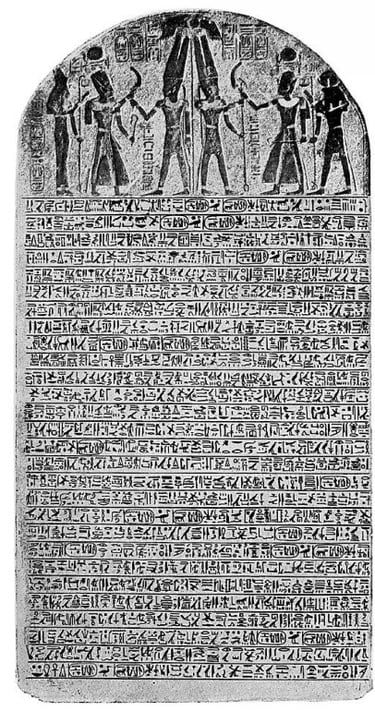Beyond Fairy Tales: Why I Believe in the Bible
This reflection explores three main reasons why the Bible is trustworthy: its historical validation, remarkable consistency despite being written over 1,500 years by diverse authors, and its life-changing power. Beyond a "fairy tale," the Bible remains a living, transformative guide for those who engage with it and the God who inspired it.
Leif Torres
12/20/20244 min read
2 Timothy 3:16
“God has breathed life into all Scripture. It is useful for teaching us what is true. It is useful for correcting our mistakes. It is useful for making our lives whole again. It is useful for training us to do what is right.”
In today’s world, it’s common to encounter those who dismiss religion as pointless or even foolish, often referring to the Bible as nothing more than a “fairy tale.” Such perspectives can be particularly challenging for young people still developing in their Christian faith. These arguments may seem logical or appealing, leading some to think, I believe in the Bible, but it doesn’t really apply to my unbelieving boyfriend, girlfriend, neighbor, or boss.
This reflection led me to an important question: Why do I believe in the Bible? I realized that simply saying, “Because my parents taught me,” wasn’t enough for me. I wanted a deeper, more substantial foundation for my belief—something I could articulate and understand beyond inherited faith. After wrestling with this question, I’ve found meaningful reasons that not only support but also strengthen my faith.
The first reason for my belief stems from one of my passions—history. The Bible, at the very least, has been repeatedly validated as a historical document. While some events, such as the great flood or Moses parting the sea, are challenging to prove archaeologically, many other aspects, like the existence of the Israelites as a distinct group, are historically verifiable. For example, one key piece of evidence is the Merneptah Stele, an ancient Egyptian artifact dating back to 1208 BCE. This stele contains one of the earliest known references to "Israel," placing them in the historical record during the reign of Pharaoh Merneptah. See below:
Another compelling historical marker is the Roman senator and historian Tacitus. In his Annals, written around 116 CE, Tacitus provides a non-Christian account of Jesus and his crucifixion. He mentions that during the reign of Emperor Nero, Christians were persecuted, and their name derived from "Christus," a reference to Christ. Artifacts and historical documents like these show that the Bible intersects with recorded history, lending credibility to its narrative framework and cultural context.
The second reason for my belief in the Bible is its incredible consistency. I’ve heard coworkers say things like, “I can’t trust something written by some crackpot who supposedly wrote down their dreams.” Honestly, I get where they’re coming from. But even this claim accidentally gives the Bible some credit—because it wasn’t written by just one crackpot, but by at least 35 of them over 1,500 years! And yet, somehow, the Bible doesn’t contradict itself, and its message remains consistent from beginning to end. That’s pretty remarkable for a book with such a diverse group of authors. Now, some might say, “But wait, doesn’t the Bible contradict itself? Otherwise, why are there so many denominations?” To that, I’d argue it’s not the Bible that contradicts itself—it’s humans interpreting it to fit their own ideas. For example, people see Jesus turning water into wine and think, If Jesus drank wine, it must be okay for me to drink too! As if the Lord of the cosmos is sitting in the corner of a room, drunk out of His mind. Seriously? That’s a bit of a stretch.
The truth is, people have an incredible talent for taking things out of context and twisting scripture to justify what they want. But when you step back and look at the Bible as a whole, its core message—about love, redemption, justice, and God’s character—holds steady. That level of consistency over 1,500 years is no small feat, and it’s one of the reasons I trust it. Plus, how often do 35 people agree on anything, through many generations, and with something this important.
The last reason, among many, that I believe the Bible is authentic and worth trusting is its powerful ability to change lives. Think about it—despite the many denominations and Christian belief systems, the Bible still has the remarkable ability to transform individuals. A convict can form a genuine relationship with God through this book. A murderer can come to understand the depth of Jesus’ sacrifice. A child can grasp how much God loves them. There’s something profound about how the Bible reaches people from all walks of life, regardless of their past or where they’re at in their journey. It’s not just words on a page; it’s alive in a way that touches hearts and changes minds. Whether you’re a skeptic or a believer, the Bible has the potential to meet you right where you are and guide you toward something greater. That’s not something you can easily dismiss. What other book can show a girl how she should be treated by her significant other? What other book can teach a man without a father how to be a man? What other book has the power to change a deviant heart and mold it into a generous soul that reflects the love and character of Jesus? There is nothing else like it. And that is why I believe in the Bible, with all my heart.
There are many reasons I believe the Bible is authentic and worthy of trust. Its historical accuracy, consistency across centuries and authors, and its profound ability to change lives all point to something far greater than mere fiction or fantasy. Despite the challenges and misunderstandings that come with interpreting scripture, the Bible remains a living, breathing testament to the truth, offering guidance, transformation, and hope to anyone willing to engage with it. That is the key—it’s all of those things if we are willing to engage with it, and with the One who inspired it.
Whether you’re exploring the faith for the first time or have been walking with God for years, the Bible continues to prove its worth and relevance in a world that desperately needs it. For me, these reasons, and many more, form the foundation of my belief in this incredible book. Its impact on my life and the lives of countless others only affirms the truth it holds, making it not just a book, but the living Word of God.





